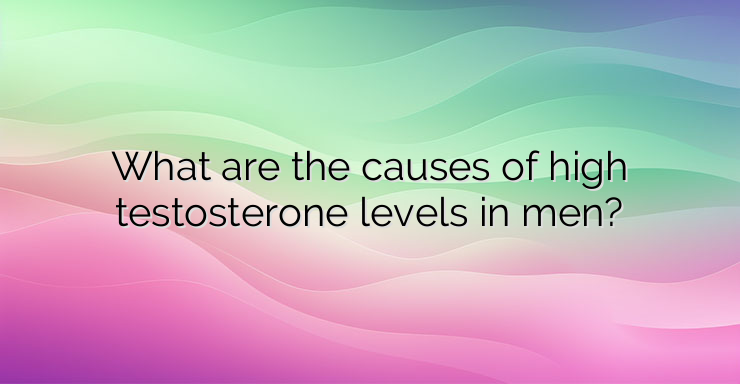What are the causes of high testosterone levels in men? Common causes of high testosterone levels in men include: Tumors near glands, such as the adrenal gland or testicles; Using anabolic steroids to build muscle mass or improve athletic performance; Taking testosterone boosting supplements or using testosterone therapy for abnormally low testosterone levels. In this case, the doctor must carefully monitor the patient’s hormone levels to make sure they do not become too high; Overuse of testosterone gel, which is absorbed into the skin and can cause testosterone levels to rise How are high testosterone levels in men detected? There are two main diagnostic methods that can be used to detect high testosterone levels: The physical examination, in which the doctor takes an anamnesis (medical history) of the patient by asking questions about the patient’s overall health and looking carefully for any symptoms of high testosterone; A blood test in which a blood sample is taken using a needle, then the sample is sent to a laboratory for analysis. This test is usually done in the morning when testosterone levels are highest What is the treatment for high testosterone levels in men? Treatment for high testosterone levels depends on the cause. Eliminating any external source that raises testosterone levels is often the first line of treatment for high testosterone caused by medication or anabolic steroid use. Anabolic steroids should be stopped immediately. If the patient has taken testosterone supplements or been on testosterone therapy, it is necessary to consult with his doctor about how to normalize testosterone levels. Exercising regularly and eating a well-balanced diet can help boost testosterone levels naturally, rather than taking testosterone-boosting supplements. It can also help reduce excess weight caused by an imbalance in testosterone levels. If the cause of the increase in testosterone levels is the development of a tumor, it must be removed by surgery. Bibliography: 1. Cleveland Clinic. Sexual hormone disorders: Descriptions 2. Harvard Medical School – Harvard Health Publishing. Testosterone – what it does and doesn’t do 3. Endocrine Society. Reproductive Hormones


Leave a Reply